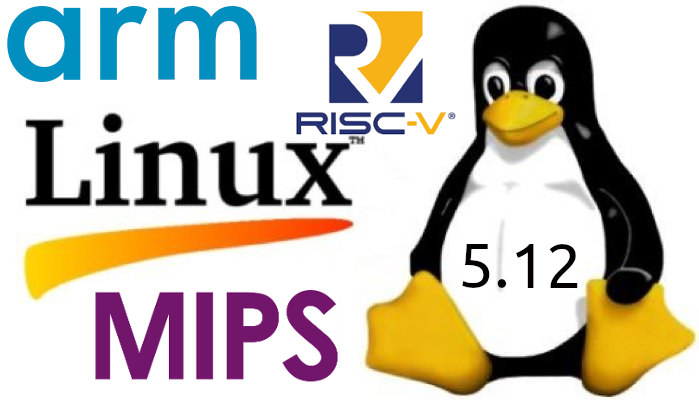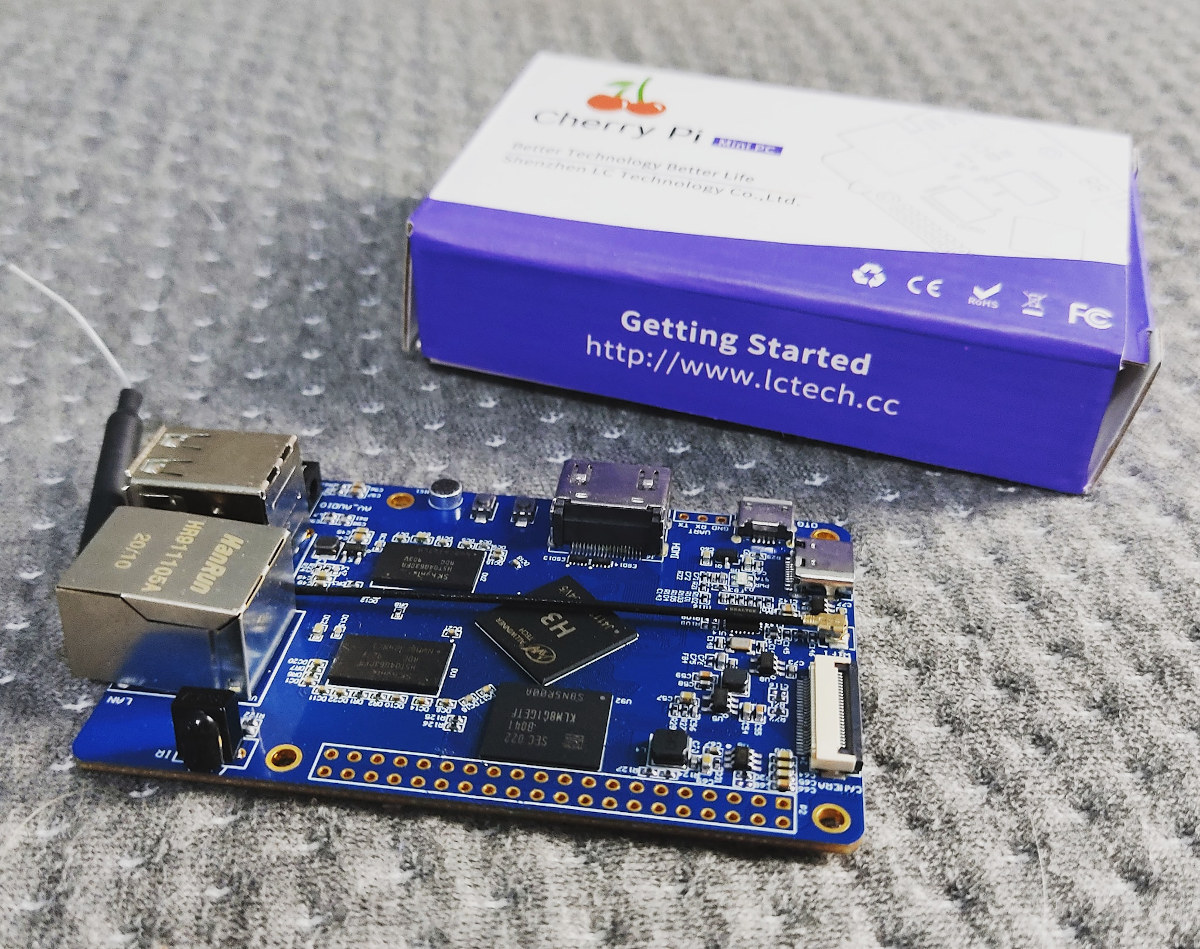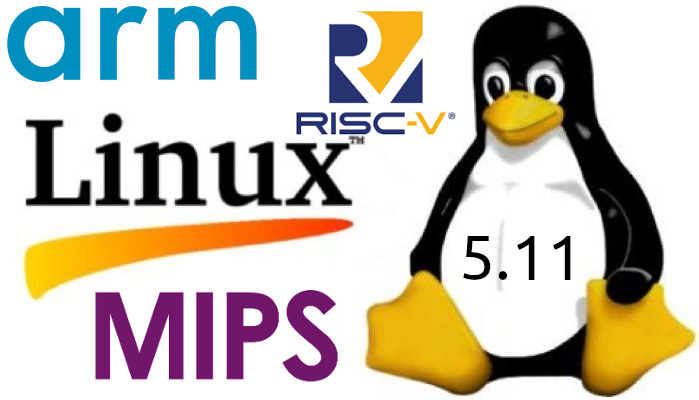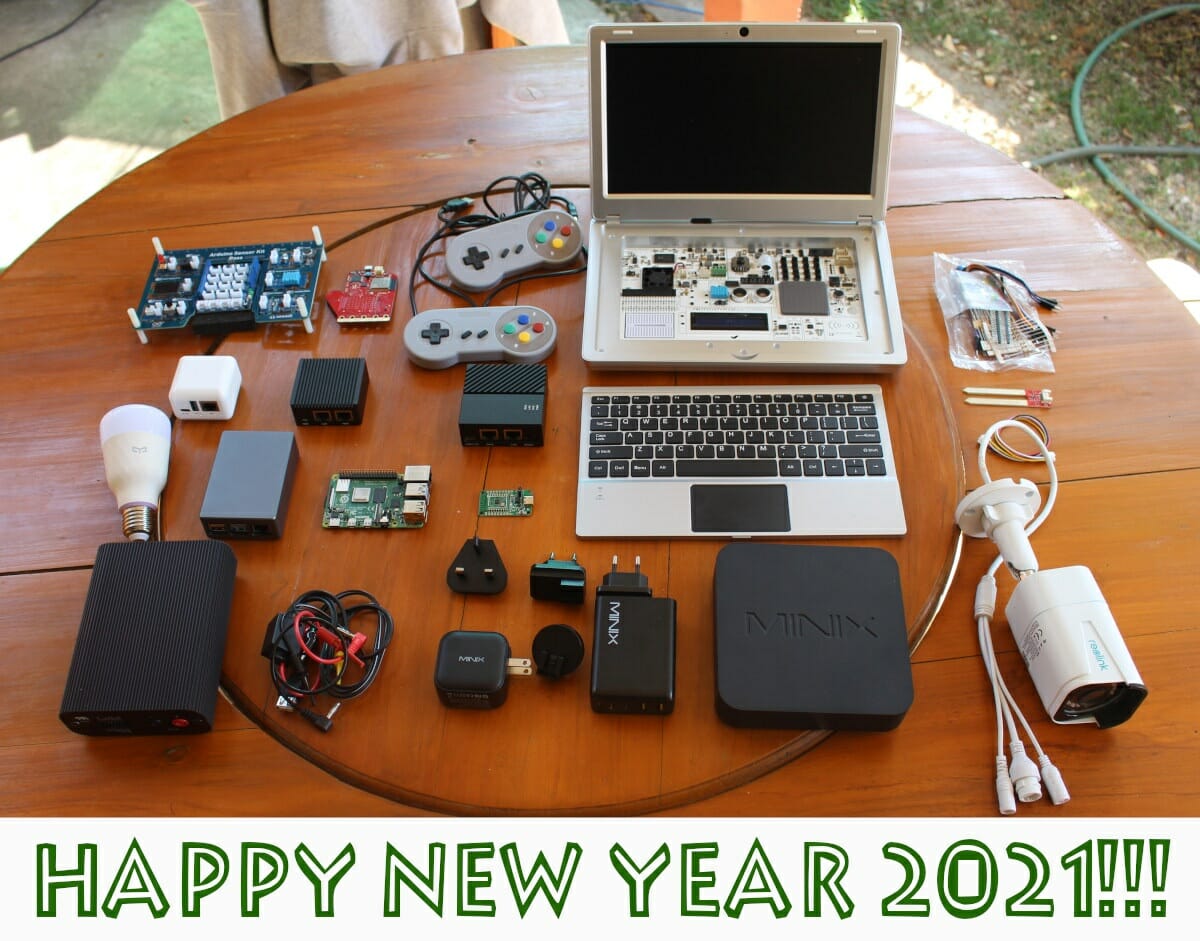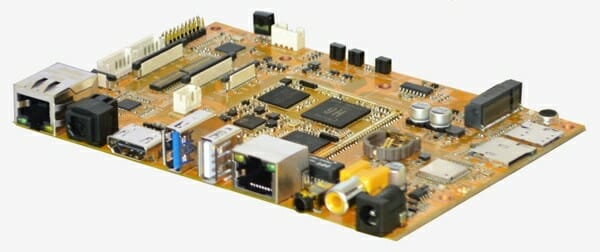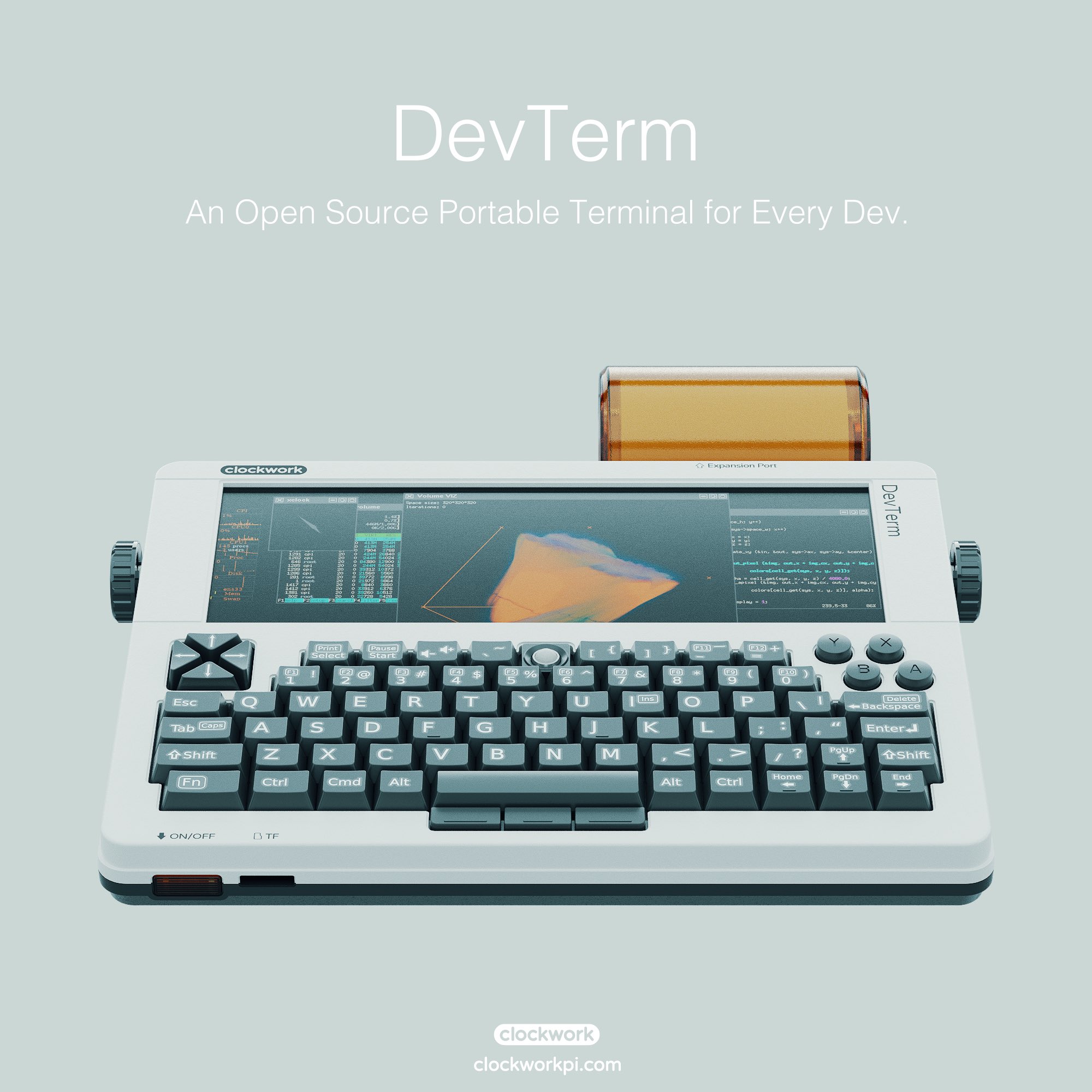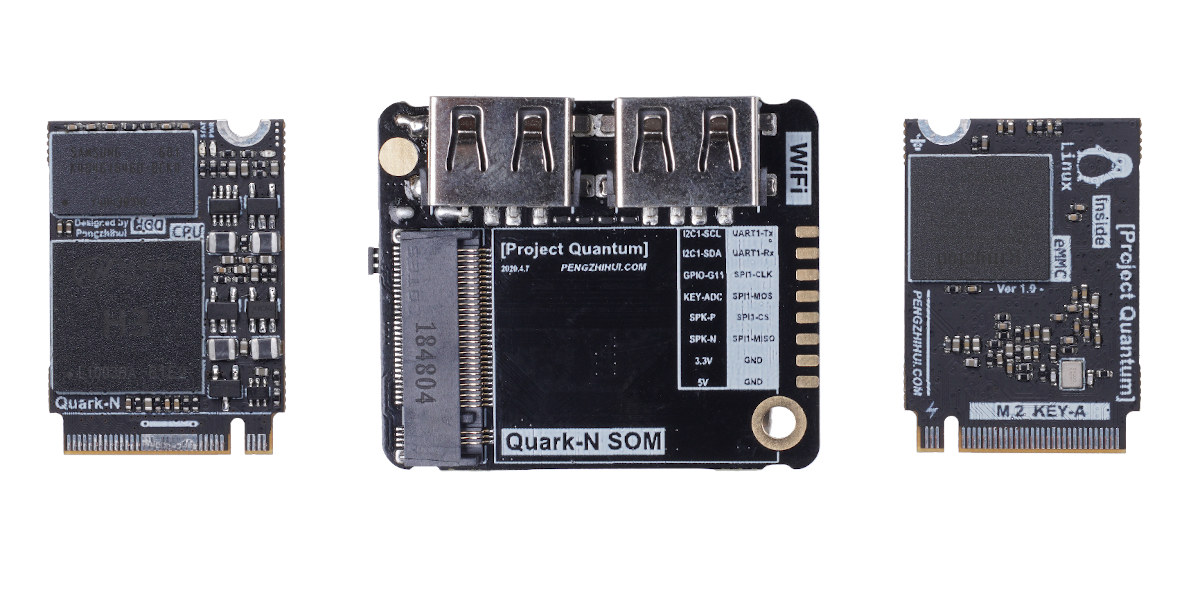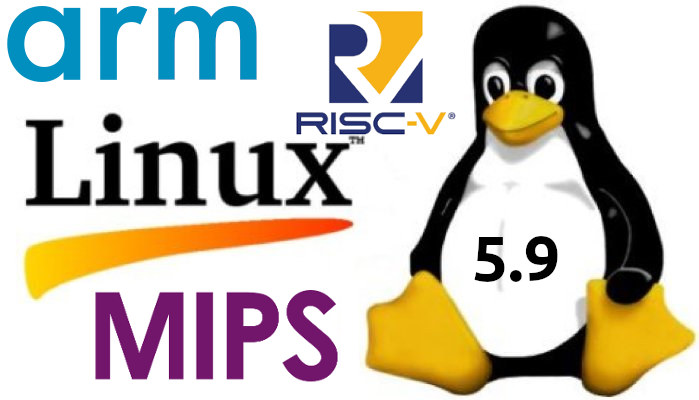Linux 5.12 release was expected last Sunday, but Linus Torvalds decided to release one more release candidate, namely Linux 5.12-RC8, to “make sure things are all settled down“, so the latest Linux kernel is now expected this weekend. Tihs should not yield any significant changes, so we can check what’s new in Linux 5.12, notably with regards to Arm, MIPS, and RISC-V architectures often used in SoC’s found in embedded systems. Around two months ago, the release of Linux 5.11 added support for Intel’s software guard extensions (SGX) and Platform Monitoring Technology (PMT), AMD “Van Gogh” and “Dimgrey cavefish” graphics processors, MIPI I3C host controller interfaces, and much more. Some interesting changes in Linux 5.12 include: Added support for ACRN hypervisor designed for IoT & embedded devices Added support for Playstation DualSense & Nintendo 64 game controllers, as well as Nintendo 64 data cartridges Dynamic thermal power management via a […]
Cherry Pi PC SBC is an Orange Pi PC clone selling for $16.5 and up
Orange Pi PC is an Allwinner H3 SBC that was launched in 2015 for as little as $15 plus shipping (now $17.42 with 1 GB RAM), and made by a company called Shenzhen Xunlong Software. The next year, the company launched Orange Pi PC Plus with 8GB eMMC flash and WiFI connectivity for $20 (now $25.54). It appears another company named “Shenzhen LC Technology” has designed a board with similar specifications & layout, so not technically a clone, but close enough. Meet Cherry Pi SBC. Cherry Pi PC V7 SBC specifications with highlights in bold or strikethrough showing the differences with Orange Pi PC: SoC – Allwinner H3 quad-core Cortex A7 processor with an Arm Mali-400MP2 GPU System Memory – 512MB or 1GB DDR3 Storage – MicroSD card slot up to 64GB, optional 8GB eMMC flash, Video Output – HDMI 1.4 and AV ports Audio I/O – HDMI, AV port, […]
Linux 5.11 Release – Main Changes, Arm, MIPS & RISC-V Architectures
Linus Torvalds has released Linux 5.11 just in time for… “Valentine’s Day”: Nothing unexpected or particularly scary happened this week, so here we are – with 5.11 tagged and pushed out. In fact, it’s a smaller-than-average set of commits from rc7 to final, which makes me happy. And I already have several pull requests lined up for tomorrow, so we’re all set for the merge window to start. But in the meantime – and yes, I know it’s Valentine’s Day here in the US – maybe give this release a good testing before you go back and play with development kernels. All right? Because I’m sure your SO will understand. Linus Last time around, Linux 5.10 was an LTS release that added EXT-4 performance enhancements, improved post-Spectre performance, as well as the enablement of BCM2711 (Raspberry Pi 4) display pipeline, among other many changes. Some of the notable changes in […]
Year 2020 in review – Top ten posts and stats
It’s this time of the year when we look back at what happened, and what may be next. 2020 did not pan out as planned in more ways than one, but there were still some interesting developments. Based on 2019 announcements, 2020 was promising to be an exciting year for Amlogic and Rockchip with the expected launch of RK3588 and S908X high-end processors for 8K capable devices, but we’ll have to wait for 2021 for this to happen. Instead, the most interesting processor of the year from the Allwinner, Amlogic, and Rockchip offerings was probably Amlogic S905X4 processing adding AV1 hardware decoding. As pointed out in our “RISC-V 2020 highlights” post, it was a fairly eventful year for RISC-V architecture, although there’s still a long road ahead, especially for application processors. We had seen some general-purpose and Bluetooth RISC-V MCUs in 2019, but 2020 saw the launch of the first […]
Allwinner H6 SBC offers dual Ethernet, four display outputs, M.2 expansion
While the processor was introduced in 2017, there are only a few Allwinner H6 SBC’s on the market with, for instance, Orange Pi 3 or Pine H64 boards, and it never became as popular as solutions based Allwinner H3 processor. But Boardcon has now launched its own Allwinner H6 SBC targeting professionals with Boardcon EMH6 board combining a carrier board and a computer-on-module that can be integrated into products. Boardcon EMH6 specifications: Core module SoC – Allwinner H6 quad-core Arm Cortex A53 processor with Arm Mali-T720 GPU with support for OpenGL ES3.1/3.0/2.0/1.1 System Memory – 1GB LPDDR3 Storage – 8GB eMMC Storage – MicroSD card slot, M.2 slot for NVMe SSD Video Output 1x HDMI 2.0a up to 4Kp60 1x CVBS interface 1x RGB interface or 2x eDP interface via NCS8801S RGB-to-eDP converter Backlight header Camera – 24-pin connector compatible with 13MP OV13850 camera sensor Audio – Optical S/PDIF output, […]
DevTerm with ClockworkPi v3.14: a modular, portable computer
After the launch of ClockworkPi GameShell in Q4 2018, now ClockworkPi has come with yet another exciting product. DevTerm is a portable computer that comes with a 6.8-inch IPS screen, a keyboard with 67 keys, and a battery module, all connected to ClockworkPi v3.14 carrier board and a choice of core modules. It will also come with an optional built-in thermal printer. ClockworkPi v3.14 Mainboard and the Core boards The mainboard ClockworkPi v3.14 uses a compact design and comes with a reduced size of 95x77mm. With a modular design, it gives you a choice of “core board” modules for various applications. Moreover, ClockworkPi v3.14 is now compatible with the Raspberry Pi CM3 series, which means that your work on the Raspberry Pi can be “teleported” to a portable terminal without hassle. It has integrated 5GHz WIFI (802.11ac) and Bluetooth 5.0 which makes it suitable for wireless communication applications as well. […]
Quantum Mini devkit combines Allwinner H3 M.2 SoM with baseboard
Quantum Mini may be yet another Allwinner H3 Arm Linux development board, but what makes it special is the company used the standard M.2 Key-A 22mm form factor to create Quark-N Allwinner H3 system-on-module with storage and memory. The kit is completed by Atom-N baseboard that takes the M.2 module and offers two USB 2.0 ports, one USB Type-C port, as well as 2.4 GHz WiFi 4 and Bluetooth 4.0 connectivity, and a MicroSD port for additional storage. Quantum Mini development kit specifications: Quark-N SoM SoC – Allwinner H3 quad-core Cortex-A7 @ 1GHz with Mali-400MP2 GPU System Memory – 512MB LPDDR3 Storage – 16GB eMMC flash Interfaces exposed via M.2 connector – Ethernet, SPI, I2C, UART, GPIO, MIC, LINEOUT Dimensions – 31 x 22mm (6-layer PCB) Temperature Range – 0-80°C Atom-N baseboard M.2 socket for Quark-N system-on-module Storage – MicroSD card slot Display – TFT display Connectivity – 2.4 GHz […]
Linux 5.9 Release – Main Changes, Arm, MIPS & RISC-V Architectures
Linus Torvalds has just announced the release of Linux 5.9 on lkml: Ok, so I’ll be honest – I had hoped for quite a bit fewer changes this last week, but at the same time there doesn’t really seem to be anything particularly scary in here. It’s just more commits and more lines changed than I would have wished for. The bulk of this is the networking fixes that I already mentioned as being pending in the rc8 release notes last weekend. In fact, about half the patch (and probably more of the number of commits) is from the networking stuff (both drivers and elsewhere). Outside of that, the most visible thing is a reinstatement of the fbdev amba-clcd driver – that’s a noticeable patch, but it’s basically just mainly a revert. The rest is really really tiny (mostly some other minor driver updates, but some filesystem and architecture fixes […]


